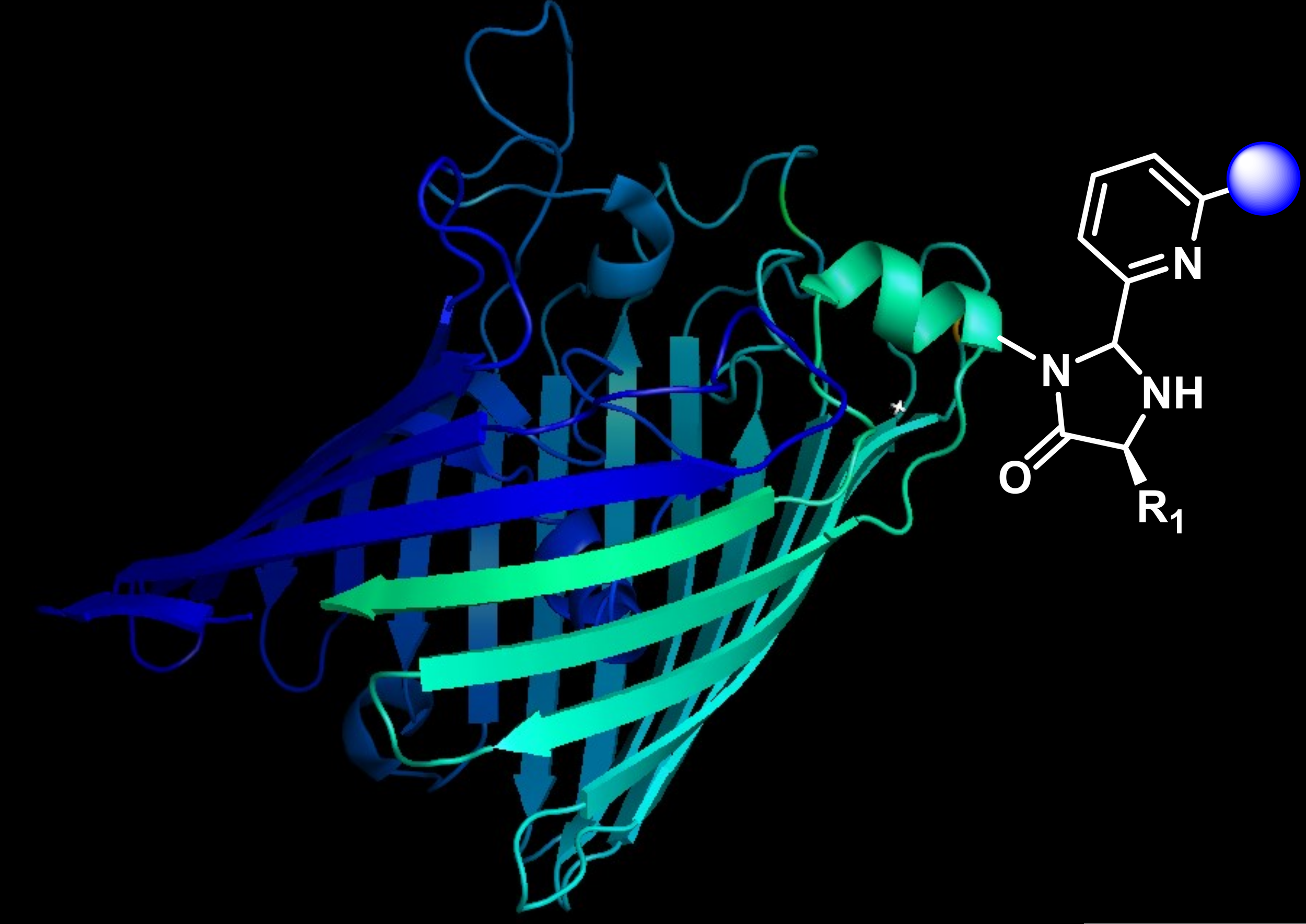
Our research
Our aim is to develop new tools in organic chemistry and chemical biology that can help address important questions and challenges in tissue biology and disease. A major focus of this work is the production and functionalisation of peptides, proteins, and biomaterials which can be used to scaffold the growth of in vitro models of both healthy and diseased tissues. To do this, our research spans across fundamental, applied, and translational research, broadly split across three main areas.
Site-selective tools for protein modification
Attaching proteins to a biomaterial surface is a potent way to influence how cells interact and respond to that material. Controlled attachment is essential to maintain protein activity and mimic some of the complex biochemical signalling cascades used by nature to direct tissue growth. We are therefore developing new chemistries that allow proteins to be site-selectively modified with single amino acid precision. Of particular interest are new reactions that target naturally occurring amino acids or peptide sequences, or methods that exploit the rich variety of transition metal-mediated reactions.
Barber et al, JACS Au, 2025, DOI:10.1021/jacsau.5c00238
Barber et al, RSC Chem Bio, 2023, 4, 56-64.
Novel stimuli-responsive materials
Synthetic materials are often static and stable, in stark contrast to the dynamic environments provided by the natural extracellular matrix. To try and recreate the constantly changing structural and biochemical cues that this matrix gives to developing tissues, we are creating dynamic materials that can respond to user- or cell-applied stimuli. These materials offer exciting possibilities for the next generation of ‘smart’ biomaterials, with the potential to greatly increase the accuracy and maturity of lab-grown tissue models.
Bahou et al, Biomacromolecules, 2023, 24, 4646-4652.
New synthetic methods for small molecule and peptide labelling
The Spicer Lab is a synthetic organic chemistry lab at heart! Our lab continues to develop new synthetic methods and platforms, with a focus on accessible isotope labelling chemistries and new routes for the late-stage functionalisation of synthetic peptides.
Rose et al, Chem. Sci., 2022, 13, 12791-12798.


